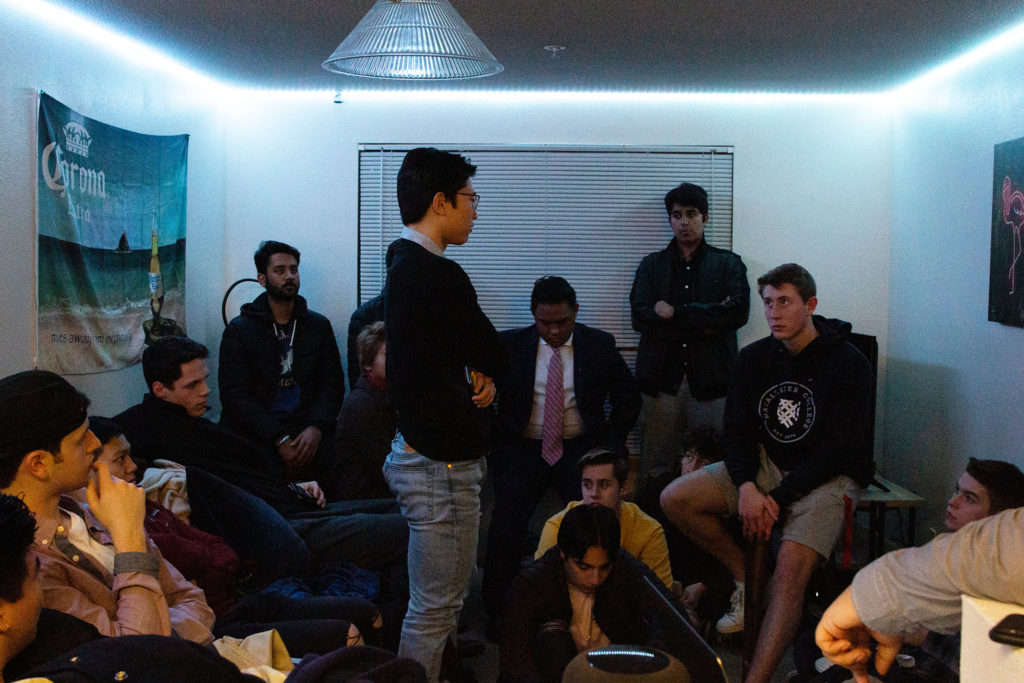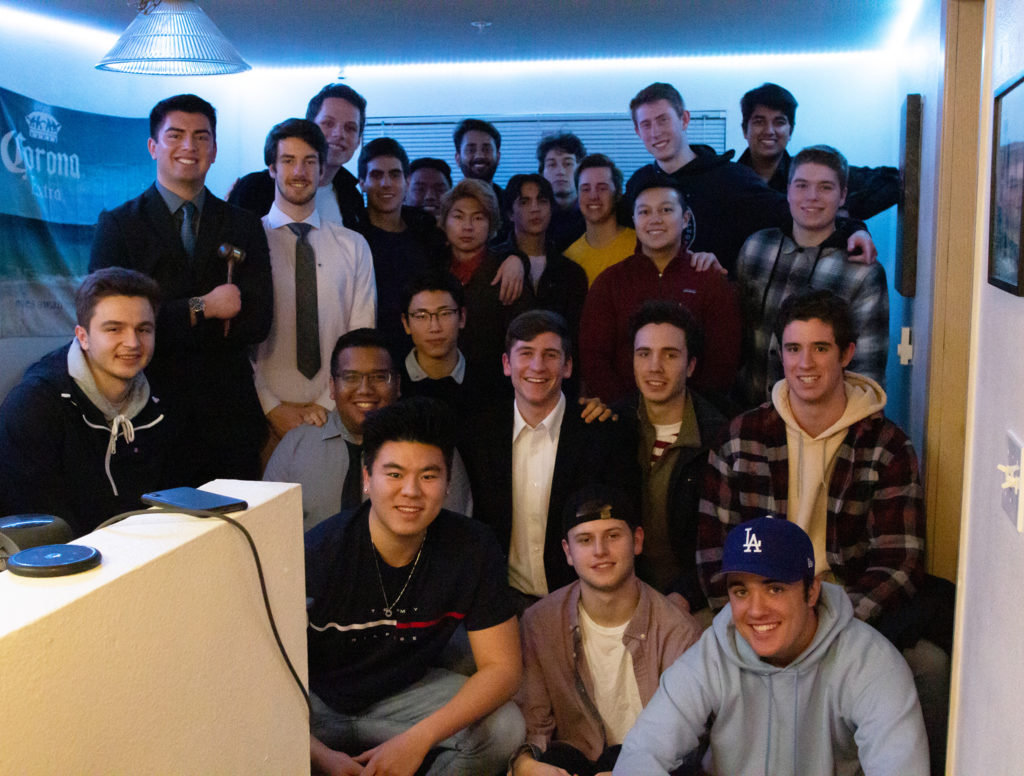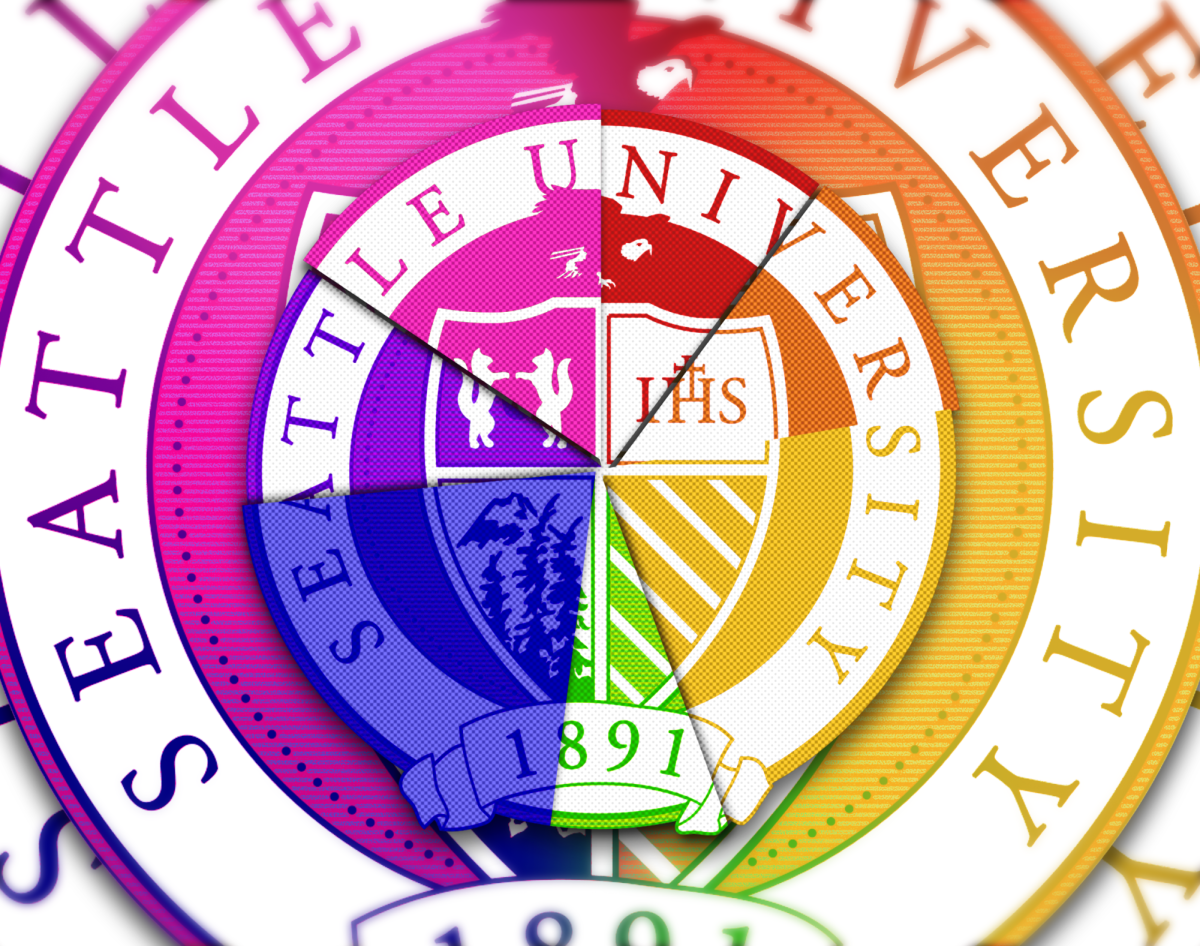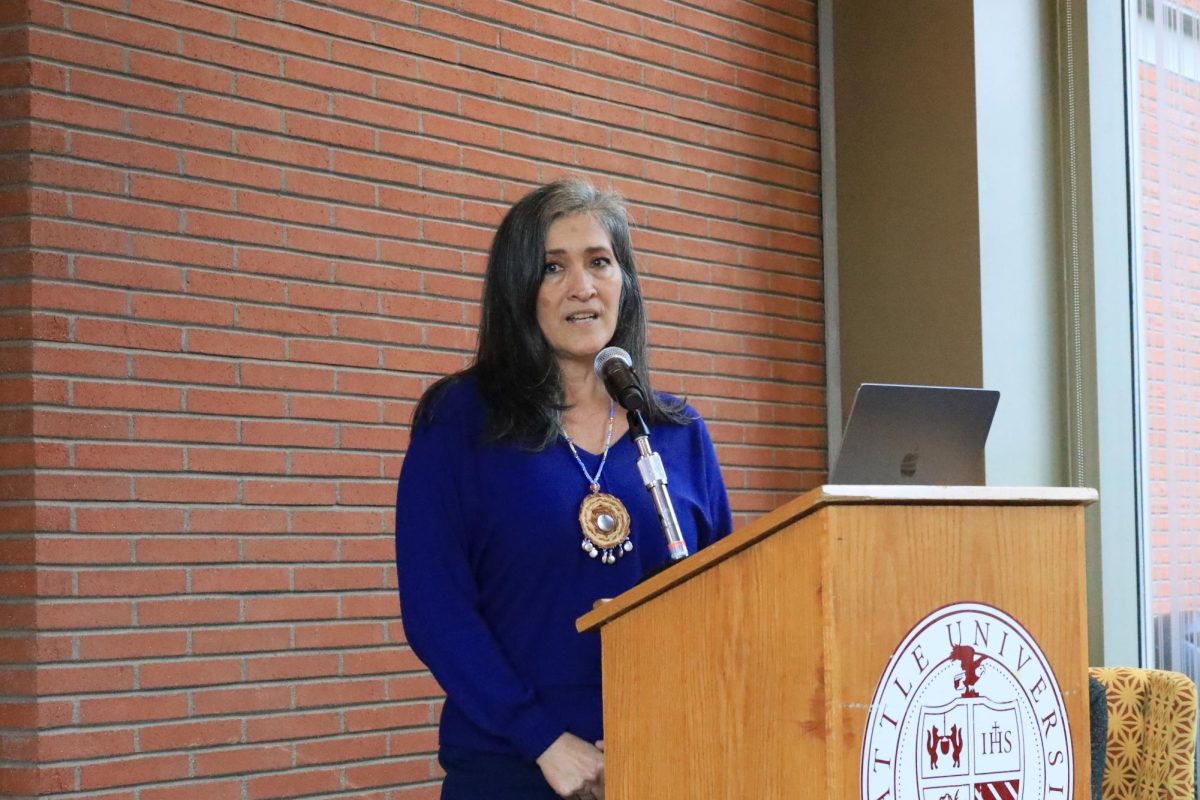Seattle University has been free of social Greek life—but a group of students decided to make a change and founded a Kappa Sigma colony on Feb. 16, 2019.
Kappa Sigma is an established, independent colony with Seattle U students—it is not a chapter and it is not endorsed by the school. First-year Sergio Palomino is the president of Kappa Sigma, the first fraternity to be organized by Seattle U students. He is focused on the strengths a social fraternity can offer men at Seattle U.
Palomino was inspired to begin the colony due in part to a program he participated in throughout high school.
“I was part of an organization called The National League of Young Men, and I feel it developed me as a young man,” Palomino said. “I of course need to develop myself further, and a fraternity was the best way I could do such.”
Palomino has been working on the project since July. After many months of back and forth between the Center for Student Involvement (CSI) and Palomino, he was given the green light, but only under certain conditions. The fraternity can have no affiliation with the university, other than the fact that the members are students. The university has nothing to do with their organization.
There are over 40 male students who have joined Kappa Sigma thus far. First- year Business major Michael Shoyhin originally joined as a member, but after the establishment of the colony, he was voted vice president.
“Greek life to me is a reason to get a group of good guys together and see if we can achieve something together as a unit,” Shoyhin said. “There is a lot of camaraderie and Greek life is a great resource for connections.”
Palomino chose to establish with Kappa Sigma due to the freedom they grant him with recruitment.
“Typically, with fraternities, recruiters are brought in to do the recruiting for you, causing massive numbers of people to be sorted through and not having a personal touch to it all,” Palomino said. “I can choose the guys I feel a connection with and ones that I know would be good brothers.”
Palomino also stated that Kappa Sigma’s four pillars—scholarship, leadership, fellowship, and service— are a large factor for why he chose this specific Greek organization. Palomino wants this to be a successful program and believes this is a great way to set these men up for their future.
“I hope everything goes well for them and that there are no issues whatsoever, but I am very afraid of what will go down.”
Fellow First-year Business student Michael Valderrama joined the fraternity because he knew Palomino prior to coming to Seattle U and believed in his mission to start something great.
“I was always interested in Greek life, and it is a great way to network. It is a great community and I hope that we can give back to a city that has given us so much,” Valderrama said.
In regards to recruitment, Shoyhin explained that the fraternity will be selective in who it allows to join.
“It is not just open for everybody. We want to make sure we know all the guys as good, honest, hardworking, friendly, and overall good men. That is the first step,” he said.
Palomino further backed this by saying that inappropriate behavior will not be tolerated in any shape or form. Sexual assault is prevalent in fraternities across the country and it is one of the main apprehensions Seattle U community members hold.
Palomino stated he wants to work with people on campus, like Green Dot, adding that it is crucial to help prevent this behavior.
“We’re going to have workshops,” Palomino said. “It is part of the requirement for Kappa Sigma for colonies and chapters to have workshops when it comes to sexual assault and awareness.”
Multiple Kappa Sigma chapters and members at other universities have been involved with sexual assault cases and are likely the reason behind the need for workshops.
Bernard Liang, director of the CSI, clarifies this by explaining that Seattle U has not made an agreement to recognize national fraternities and sororities in the past, and this is the first time that something like this happened. However, there are fraternities that have city-wide chapters in Seattle that have recruited students on campus, but those are not related to Seattle U either.
Regarding the existence of Kappa Sigma despite not being recognized by Seattle U, Liang said “the university has a duty to support these students on and off campus.”
“There can be positives as they find a sense of community, and the networking possibilities are outstanding,” Liang said. “The harder parts are the gender conversation and issues in the past with secretive issues and relationships, which exist in Greek life across the country.”
Liang wants students to know that having mixed feelings is okay.
“The situation is certainly very complex, and we are open to hearing from all sides and how all of these pieces fly in CSI and certainly the university,” Liang said. “We want to have honest conversations and we want the students to have honest conversations.”
A few members of the Seattle U community have expressed that they are not thrilled about the fraternity. A group of female students, who wish to remain anonymous, voiced their concerns.
“I just think it is weird the guys that started it knew when they decided to come here that there was no Greek life,” said one student. “Why did they come here if they wanted it?”
One other woman in the group is worried about the culture of fraternities and how it could impact Seattle U.
“I think that frat culture, in general, is guys thinking they are ‘all that.’ I hope everything goes well for them and that there are no issues whatsoever, but I am very afraid of what will go down,” she said.
After many months of back and forth with the CSI, Palomino was given the green light–but only under certain conditions.
While Seattle U doesn’t endorse social fraternities and sororities, the university does have two business fraternities on campus. Professional fraternities and social fraternities have some similarities, but the missions are different. For social fraternities, a big focus is development of character, while professional fraternities center on building careers.
Janani Sundaresan, who graduated last quarter, was the president of the professional business fraternity Alpha Kappa Psi at Seattle U.
She took to Twitter to state her concerns. The verified Kappa Sigma account tweeted a picture welcoming the newly inaugurated colony in front of the University of Washington fraternity house. Sundaresan then quote tweeted this tweet with the following statement:
“As someone who was ~significantly~ part of one of the closest things to Greek life SU has to offer, this absolutely SICKENS me. SU really doesn’t need more men that are part of a system founded upon patriarchal, classist, and privileged ideals.”
In addition to these grievances, in an interview with The Spectator, Sundaresan expressed hesitation at Kappa Sigma’s ability to organize themselves in a structured fashion, seeing as they are a brand new organization led by first-year students.
“I was in the professional fraternity for three years, which built up my experience that led me to become president,” Sundaresan said. “I easily spent 40 hours a week doing work while being president. Starting from scratch would be very difficult.”
Sundaresan said she remembered that some students rush to join the professional fraternity, but dropped out because it was not the same Greek life experience they had anticipated, such as a social fraternity. Sundaresan also detailed the rush process and how it differs from social fraternities. Even though both lead to having connections further down the road, she believes there is a bigger distinction in professional fraternities.
“Professional fraternities have high connections,” Sundaresan said. “The rush process consists of ten interviews, multiple resume reviews, very in-depth conversations, it’s a very holistic approach. Rush is about emotional intelligence, and businesses know how difficult the process is, so it is appealing.”
As of right now, Kappa Sigma does not have any big events planned.
Michaela can be reached at
[email protected]










